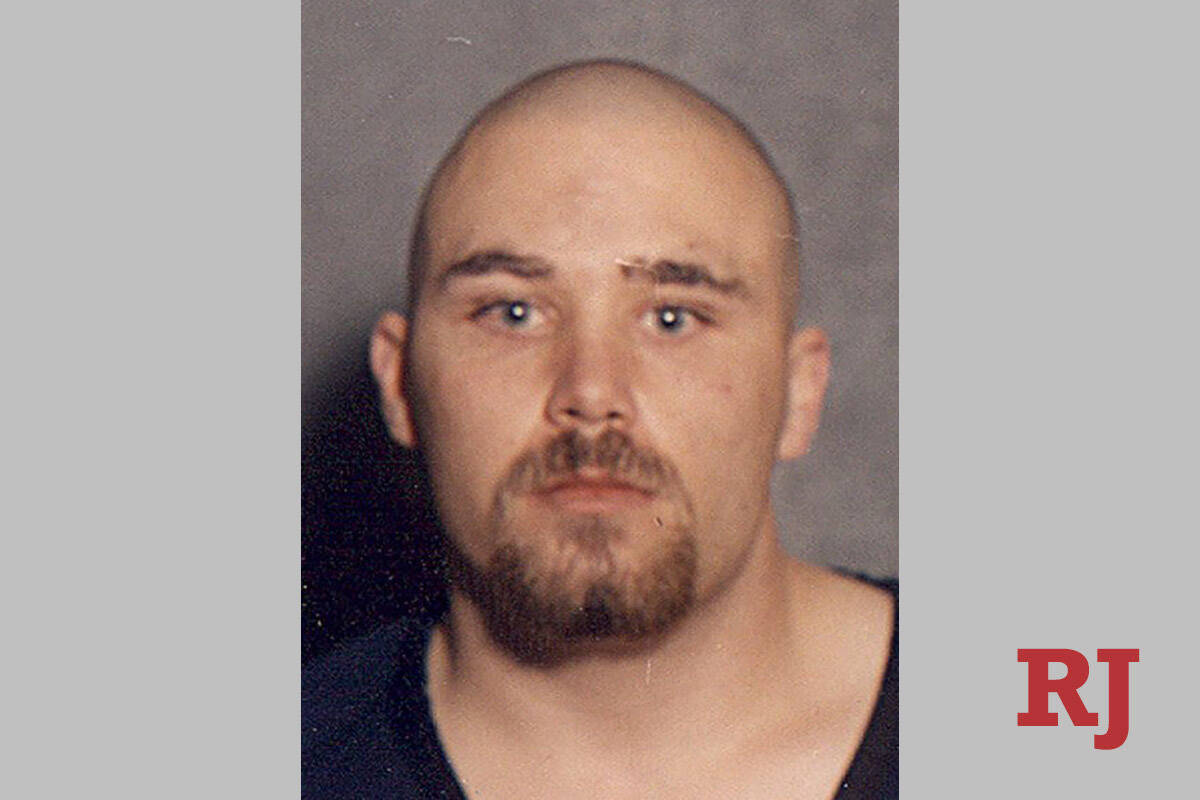Witness says Nevada’s execution plan for Zane Floyd could cause agony
An anesthesiologist testified on Tuesday that the drug cocktail Nevada wants to use to execute death row inmate Zane Floyd could result in extreme suffering while he’s paralyzed and suffocating.
“No human being should be exposed to the terror and agony of not being able to breathe,” said Dr. Mark Heath, an assistant professor of anesthesiology at Columbia University Medical Center, who has testified in dozens of court cases involving lethal injections.
Heath testified for nearly five hours Tuesday in federal court during the start of a three-day evidentiary hearing regarding Nevada’s plan to execute Floyd. Defense attorneys are expected to call witnesses for all three days, while testimony from state experts is expected to be heard during hearings scheduled in December.
Floyd, now 46, was sentenced to die for fatally shooting four people and gravely wounding another more than two decades ago in a Las Vegas grocery store. He also was convicted of repeatedly raping a woman before the shooting.
In late June, U.S. District Judge Richard Boulware issued a stay of Floyd’s execution, and prosecutors were prevented from moving forward until mid-October.
Prosecutors had planned to have Floyd put to death at the end of July. If his execution goes through, Floyd could be the first person executed in Nevada since 2006.
Nevada officials plan to use drugs that have never been combined in an execution, Heath testified. Those drugs include ketamine, an anesthesia similar to PCP, and the painkiller fentanyl or the similar drug alfentanil.
The proposed protocol from the Department of Corrections indicates that the state may use cisatracurium, which is a paralytic drug, according to court documents. The state would issue the drugs in order, starting with the fentanyl or alfentanil, then the ketamine, the possible paralytic and, finally, potassium chloride or potassium acetate to induce cardiac arrest.
‘It should be like a firing squad’
Although the fentanyl and ketamine are being proposed to render Floyd unconscious and unaware, Heath testified that medical experts do not use that specific combination to induce anesthesia and it is unclear if they will work together reliably.
Heath also testified that the 1,000 mg dosage of ketamine proposed by the state is 10 times the amount he normally uses with patients.
“I really don’t know what would happen with that kind of dosage,” he said.
Although Chief Deputy Attorney General Randall Gilmer said during cross-examination that there was at least one recorded instance of someone being given 950 mg of ketamine, Heath emphasized that it was an accident.
“Nobody would deliberately give anybody 1,000 mg of ketamine,” he said.
Heath said fentanyl has never been used as the first drug in a lethal injection. He also testified that the combination of fentanyl and ketamine could result in Floyd being in an “intoxicated, confused state,” although he may not respond to stimulus. If the paralytic drug is then added, Floyd could be aware as he suffocates and the muscles controlling his lungs stop working.
The potassium chloride also has been known to cause extreme pain if a person is not properly unconscious when it is administered, Heath said.
In response to a question from Gilmer about the necessity of complete unconsciousness during an execution if someone cannot feel pain, Heath said unconsciousness should come as quickly as possible.
“It should be like a firing squad, where they instantly slump over dead,” he said.
Execution chamber
Heath, who said he visited Ely State Prison as preparation for the hearing, also testified to the setup of the facility’s execution chamber. Whoever administers the drugs will administer them from a separate room, with tubes running from Floyd through a window. Heath said that person is not required to have adequate training.
In most cases, an anesthesiologist will administer drugs while standing right next to a patient to ensure that the drugs are flowing properly and are working correctly, Heath said. Other states will have the drug administrator stand behind a screen, out of the view of witnesses, but still next to the prisoner being executed.
“The prisoner is in a completely different room. They’re watching him through a window, but they’re not able to reach out and touch him to feel if the IV is working properly,” Heath said of Nevada’s setup.
In August, Floyd’s lawyers filed a clemency petition in Clark County District Court requesting to commute his death sentence.
The petition stated that Floyd suffered from brain damage caused by fetal alcohol spectrum disorder and post-traumatic stress disorder from his time in the military and that he endured violent abuse as a child.
An appeal of Floyd’s criminal charges is before the Nevada Supreme Court.
Floyd’s lawyers also are challenging the intended method of execution in state court. A hearing in the case is scheduled for Dec. 9, court records show.
^
Contact Katelyn Newberg at knewberg@reviewjournal.com or 702-383-0240. Follow @k_newberg on Twitter.


















